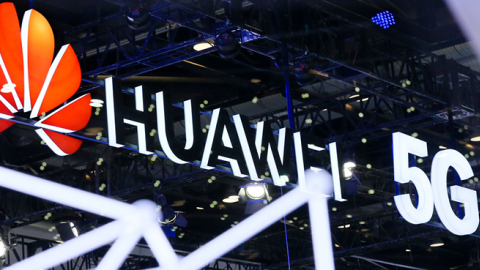The conventional wisdom is that the United States looked pretty bad, and the Chinese high-tech giant Huawei pretty good, at the Mobile World Congress in Barcelona last week.
Like most conventional wisdom, there’s a good deal of truth behind that judgement.
Huawei used the occasion to celebrate the overwhelming success it’s had in getting countries and companies to agree to let the Chinese firm build their 5G networks, the future of global telecommunications. At Barcelona Huawei was able to announce it had signed up more than 64 countries, including most recently South Africa and Switzerland.
The U.S., meanwhile, had sent a delegation from State and the Pentagon to warn everybody about the security risks of working with Huawei, which has a horrendous record as a serial cyber and intellectual property (IP) thief, and has close ties to China’s military and intelligence agencies. By every account, the officials did a miserable job passing along that message, as the Huawei juggernaut rolled on—with Huawei’s chairman Guo Ping publicly mocking the Americans on the way.
I’ve written several columns in this space warning this might happen. Huawei’s 5G secret sauce includes low capital and labor costs, backed by Chinese government-subsidized loans. That combination has proved irresistible to telecom operators around the world and their host governments, even U.S. allies.
This, despite repeated U.S. warnings that surrendering the new technologies that underpin 5G to Huawei control—which means Chinese Communist Party control—will engender major security risks that we can’t tolerate even from trusted allies.
One of those allies, Great Britain, administered the coup de grace to the U.S. effort just a week before the Barcelona congress when its National Cyber Security Centre (NCSC) issued a report basically absolving British telecom and mobile operators from any concerns about working with Huawei—despite the NCSC’s own tech director’s statement that Huawei has yet to respond to the concerns about security shortcomings raised by the NCSC last year.
The U.S. had one last opportunity to put a stick in the spokes, by releasing a request for proposals from the Department of Defense which would allocate spectrum for building a secure wholesale, carrier-neutral 5G network—one that offers an entirely new model for structuring all future 5G networks. But it allowed that chance to slip away.
Huawei makes no pretense that it intends to make sure global telecommunications respond to China’s needs and priorities. The outcome at Barcelona simply proves that a host of nations, including allies like Britain and Germany, are betting on China not the US to be the next global hegemon, and want to be on the winning side.
Still, there are two reasons why Huawei’s celebration may be premature.
The first is, there are a number of Asian countries who are still with us. They are the countries who know best what the cost of becoming a Chinese client actually is. Japan has joined us in the Huawei ban (as has Australia and New Zealand); likewise Taiwan. And while India and Thailand have agreed to test Huawei equipment, they have not become part of the Huawei juggernaut—at least not yet.
The other is the quantum factor. Building 5G without quantum capability, i.e. the ability to carry quantum key distribution networks that will be virtually unhackable, is a form of long-term telecom suicide. Quantum communication is the future of telecommunication in the 21st century. Operators who have opted to build 5G networks with Huawei, which has no plans for making those networks quantum capable, will have to rip out and replace them with ones that are, in a decade or so—adding a huge new cost that they’ll have to pass along to their customers.
In short, Huawei’s triumph could turn into a disaster, both for Huawei and for the countries and companies who are hellbent on collaborating with Huawei.
China is busily building its own quantum networks, of course, to protect its own data and communications. But it has no incentive to provide the same hackproof protection to foreign countries; on the contrary, that would undermine the entire rationale for building them with Huawei in the first place.
In short, the quantum factor offers an opportunity for the U.S. and its 5G allies to put forward an alternative candidate or candidates for building 5G networks that include quantum capability, for example with fiber optic cables able to support quantum random number generators. Almost overnight, the tables would be turned on Huawei and its Beijing masters.
So will Barcelona be remembered as Huawei’s finest hour or its equivalent to Napoleon’s march on Moscow? The answer lies with the Trump administration, and what’s left of the Western commitment to free and secure access to the Internet—and with the quantum factor.




















